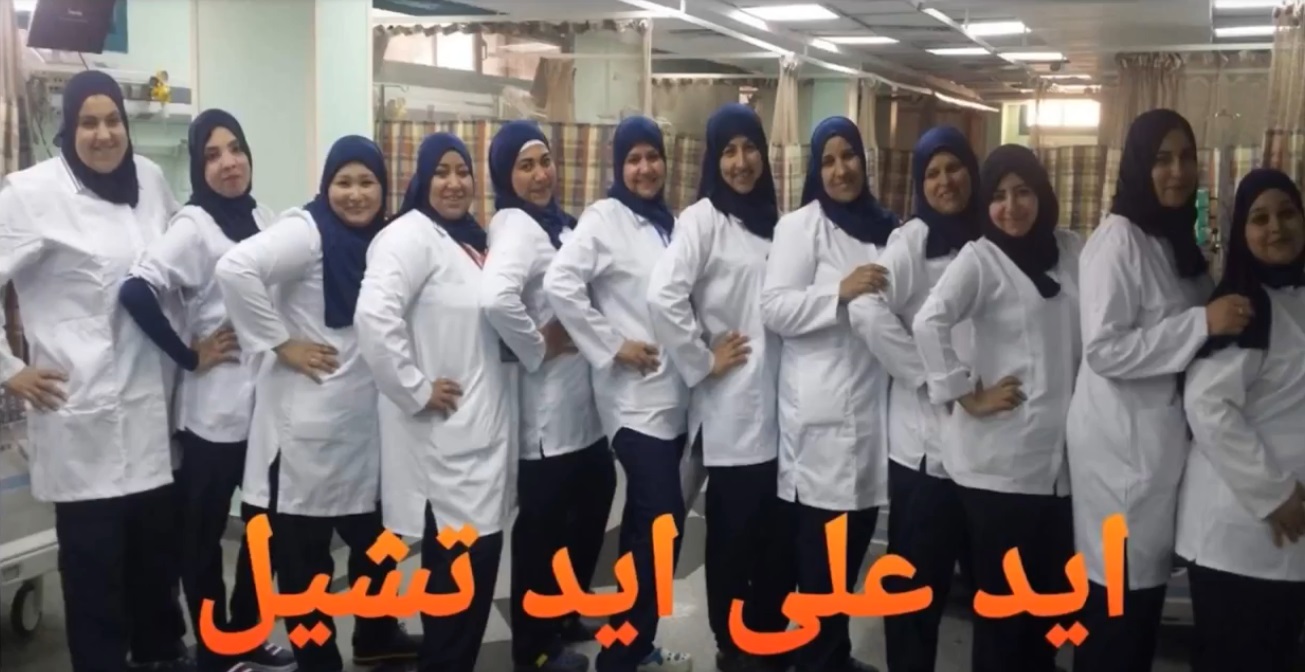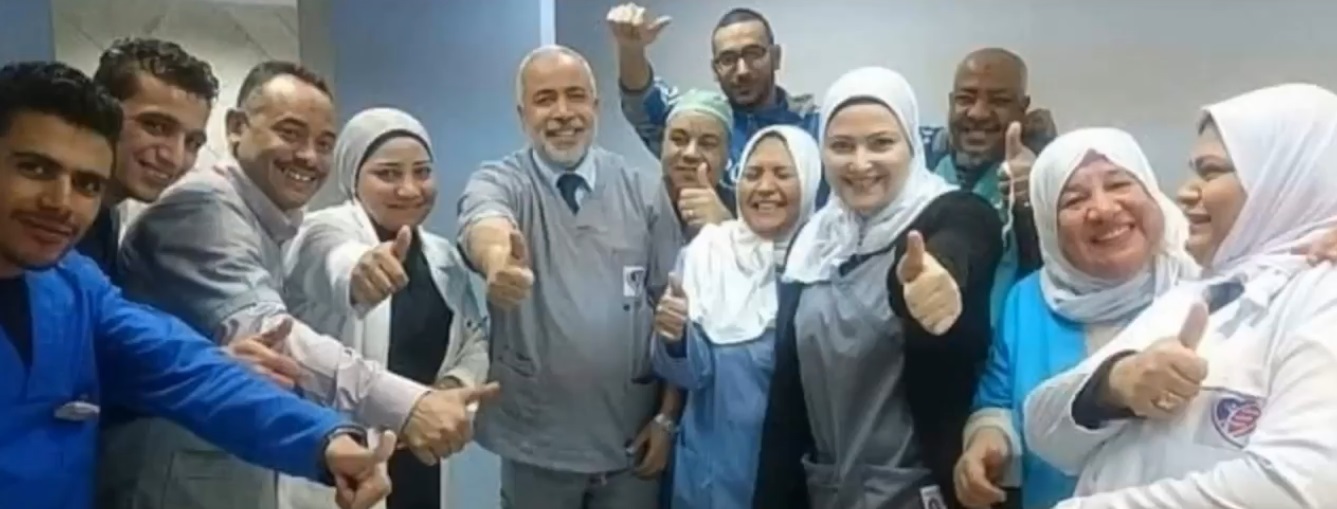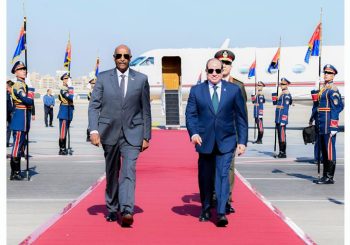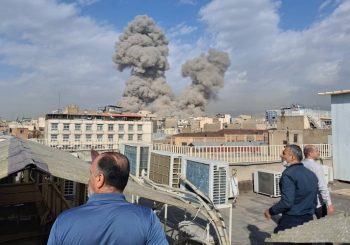Though the daily toll of new coronavirus cases in Egypt has seen a significant drop in recent weeks, the pandemic is far from being over. Still at the vanguard of the fight stand healthcare workers. Doctors, nurses, hospital administrators and workers are putting their health at a constant risk to fulfill their indispensable role.
An example of solidarity and support within the field of healthcare has been the Egyptian National Heart Institute (NHI). After two senior doctors lost their battle against COVID-19 at an early stage of the pandemic, every member of the hospital’s workforce became dedicated to doing what they can to protect themselves and their co-workers.
“We were not prepared for the passing of Doctors Youssri Kamel Fawzi and Mohamed Farid El-Gendy,” says Dr Manal Khairy*, a senior member of the hospital’s medical staff. “The shock really motivated us to fight and protect each other against the coronavirus.”
Initiatives gradually emerged among NHI’s ranks, allowing staff to feel informed, cared for, and protected at all times. Among those initiatives were EGP 2000 for anyone who got infected, as well as the financing of personal protective equipment and financing the purchasing of necessary items such as nebulisers.
Another mechanism built on existing channels at the NHI. Two years prior to the coronavirus outbreaks, two of the doctors started a WhatsApp group that welcomed all the nurses.
“We [use the group to] wish each other a good morning, have chats, if anyone has an interesting fact to share, if anyone has a conflict with anyone, we resolve it there, if someone has a good recipe they share it…and in Ramadan there would be educational competitions and the winner would get a flower and a financial reward. It encouraged us to read and to get informed about our work,” Nour El Hoda, a nurse at NHI, told Egyptian Streets.
After the COVID-19 pandemic hit, a new use for this group emerged: the nurses at the hospital began using it as a tool to inform themselves about how to protect themselves from the virus. A few doctors took it upon themselves to dedicate a significant amount of time to advising the nurses on how to act if they got infected.
Making themselves available at almost all hours, they used this group, as well as a new one under the name of “Together Against Coronavirus,” which welcomed not only nurses, but administrators as well, and where all questions regarding precautions, protective equipment, and medication.
Khairy tells Egyptian Streets that everyone at the NHI was ready to support and help in every way they could. The only challenge they faced was the inevitable risk that the virus posed to their safety in spite of the protections.
“I found out on the first day of Eid el Fitr that I had coronavirus. My sister-in-law was testing and I went with her, and I discovered that I was positive,” said Nour Elhouda.
“I didn’t receive any support from anywhere else, from any of the official resources,” Nour Elhouda explained. “All the help I got was from the doctors at the Institute, telling me where to get what medicine, raising my spirits.
“They delivered the recovery package straight to my door and I started taking the medicine the day after I was diagnosed.”
The doctors, she said, would call her regularly asking her what she needed, buying the necessary medication and finding ways to send to her to facilitate access, especially if it was hard to come by. They would often task any team member living near a pharmacy to buy certain types of medication for those who had been infected, ensuring that they would cover the cost completely.
“Send your husband, they would tell us. Send your brother, send your son to pick up the medication for you,” Nour Elhouda told Egyptian Streets. “And they told us how to make sure not to infect the people we live around.”
But even for those not diagnosed with the virus, help was prepared without fail. Khairy, came up with the idea of creating “Immunity Packages” that carried a variety of vitamins, supplements, foods, and herbs that boosted immunity, helping those at risk of infection and exposure to protect themselves.

“I was surprised to find that all the medication and supplements that helped in boosting the immune system were absent from the markets,” Khairy tells Egyptian Streets. “So I decided to try my best to find foods and natural herbs that help, and provide them for our team along with the supplements.”
Khairy and her colleagues were also the ones who sought out gowns, masks, gloves, and other types of personal protective equipment, to ensure that all hospital staff had everything they needed.
“The doctors are not personally responsible for our well-being, but they love their nurses, so they would pay for whatever we needed many times over,” Nour Elhouda says. “They don’t treat us as nurses they work with, they treat as their siblings, their family members. ”
“They gave us hope and care, allowing us to do our work with love and passion, in spite of the danger,” she adds.
But the spread of COVID-19 among hospital staff often penetrates even the most diligent precautions. Elhouda tells Egyptian Streets that the recent loss of fellow nurse, Hoda Salah, shook the NHI to its core. But even then, she says that within days, an ICU ward was named after Salah.
“These wards usually have names of great professors and surgeons. I think this is the first time something like this happens. It’s a small gesture, but it really matters,” Nour Elhouda says.
But the team at the NHI did not stop at naming the ward. Khairy told Egyptian Streets that in a moving letter Salah penned before she lost her battle to the virus, she asked those working with her at the NHI to protect and support her children. And indeed, funds were set up by the team at NHI to help finance her children’s education.

“At a specialised hospital like NHI, we only have one focus. Patients with heart issues and diseases. This creates among us a strong team spirit and sense of solidarity,” Khairy tells Egyptian Streets. “We have special ties bringing us together, and as much as I hate the coronavirus and everything it brought with it, it made me love the institute all the more.”
Nour Elhouda expressed a similar sentiment, highlighting the support she received when she herself caught the virus.
“They didn’t abandon us,” said Nour Elhouda. “If I had been in an isolation hospital, I wouldn’t have felt so cared for. They are with us until we reach the end of this, even if there are a million waves.”
*The name of the interviewee was changed at their request for anonymity.







Comments (0)